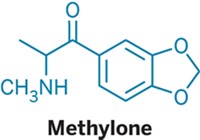Advertisement
Grab your lab coat. Let's get started
Welcome!
Welcome!
Create an account below to get 6 C&EN articles per month, receive newsletters and more - all free.
It seems this is your first time logging in online. Please enter the following information to continue.
As an ACS member you automatically get access to this site. All we need is few more details to create your reading experience.
Not you? Sign in with a different account.
Not you? Sign in with a different account.
ERROR 1
ERROR 1
ERROR 2
ERROR 2
ERROR 2
ERROR 2
ERROR 2
Password and Confirm password must match.
If you have an ACS member number, please enter it here so we can link this account to your membership. (optional)
ERROR 2
ACS values your privacy. By submitting your information, you are gaining access to C&EN and subscribing to our weekly newsletter. We use the information you provide to make your reading experience better, and we will never sell your data to third party members.
Education
Newscripts
Searching, Skin Care, Student Science, Sold
by This week's column was written by Rachel Petkewich. Please send comments and suggestions to newscripts@acs.org.
April 16, 2007
| A version of this story appeared in
Volume 85, Issue 16
Searching
Looking for altruism along with your Internet searching? Two brothers set up GOODSEARCH (www.goodsearch.com) after they realized what a fraction of the $6 billion generated annually by search engine advertisers could do if it were directed toward charitable organizations. Basically, a user can designate a charity with each search, and that charity will receive a percentage of advertiser dollars at no cost to the user or the 31,000 registered charities.
For example, if you type in "OCDI" before you do your search, you'll contribute to the Organization for Chemical Sciences in Development Inc., which is the U.S. affiliate of the International Organization for Chemical Sciences in Development (www.iocd.org).
Michael Tempesta, a chemist who has been involved with both organizations since 1985, says the money will be used to help chemical scientists in developing countries with research and travel.
Skin Care

Newscripts searches (very casually) for product names that bring chemical terms into the mainstream. Often it's just clever marketing or a coincidental play on words, but a facial cream called PHYSICAL CHEMISTRY actually was inspired by the discipline of the same name. In fact, Audrey Kunin, a dermatologist and founder of Dermadoctor, the skin care company that makes the cream, had a strong interest in chemistry during her undergraduate years at Ohio State University as well as a heavy background in formulating while in medical school, according to a company spokeswoman. The company website describes the cream as "the first single-step facial rejuvenating treatment to contain a combined 19.5% multiacid resurfacing complex with microdermabrading polymer beads." The cream has been referred to as "porefection," but Newscripts hasn't tried it.
Student Science
Two girls in New Zealand said they were just "going through a juice phase." They didn't know their juice-based science fair project would end up in court three years later.
Anna Devathasan and Jenny Suo, both now 17, tested the advertising statements about vitamin C content in RIBENA, a popular black-currant-flavored beverage. The advertising claimed that "the black currants in Ribena have four times the vitamin C of oranges." To their surprise, the girls found Ribena had almost no trace of the famed health-promoting ascorbic acid.
They did the experiment 10 times and took their results to GlaxoSmithKline, the product's manufacturer. The company didn't care then, but it does now. New Zealand's Commerce Commission recently took the case to court. GSK was fined more than $163,000 in an Auckland court for breach of the country's Fair Trading Act, according to Reuters and other news websites.
First fed to British children during World War II, Ribena is also known to bartenders. Apparently, however, the Snakebite and the King of Denmark drinks may not cure your cold while they raise your spirits.
Sold
Newscripts ribbed C&EN readers (especially organic chemists) for not buying CARBON in the sale of elements in a periodic table at Western Michigan University (C&EN, March 12, page 56). Turns out that carbon has recently been purchased by an organic chemist at Kalexsyn, a contract research organization in Michigan that specializes in medicinal chemistry.
Robert Gadwood, the company's president, first learned of the sale by reading about it in Newscripts on a Friday night. He captured carbon the very next day.
Gadwood tells C&EN he was surprised to learn that carbon went unclaimed and was happy to support the students at Western Michigan. He also notes that Newscripts' spotlight on organic chemists "certainly was a factor" in his purchase.
Eventually, Gadwood wants to purchase the majority of elements that are important to organic chemists. "Unfortunately, someone else has already bought hydrogen," he says, so his next purchase will likely be nitrogen or maybe potassium, because K can also stand for Kalexsyn.
This week's column was written by Rachel Petkewich. Please send comments and suggestions to newscripts@acs.org.




Join the conversation
Contact the reporter
Submit a Letter to the Editor for publication
Engage with us on Twitter